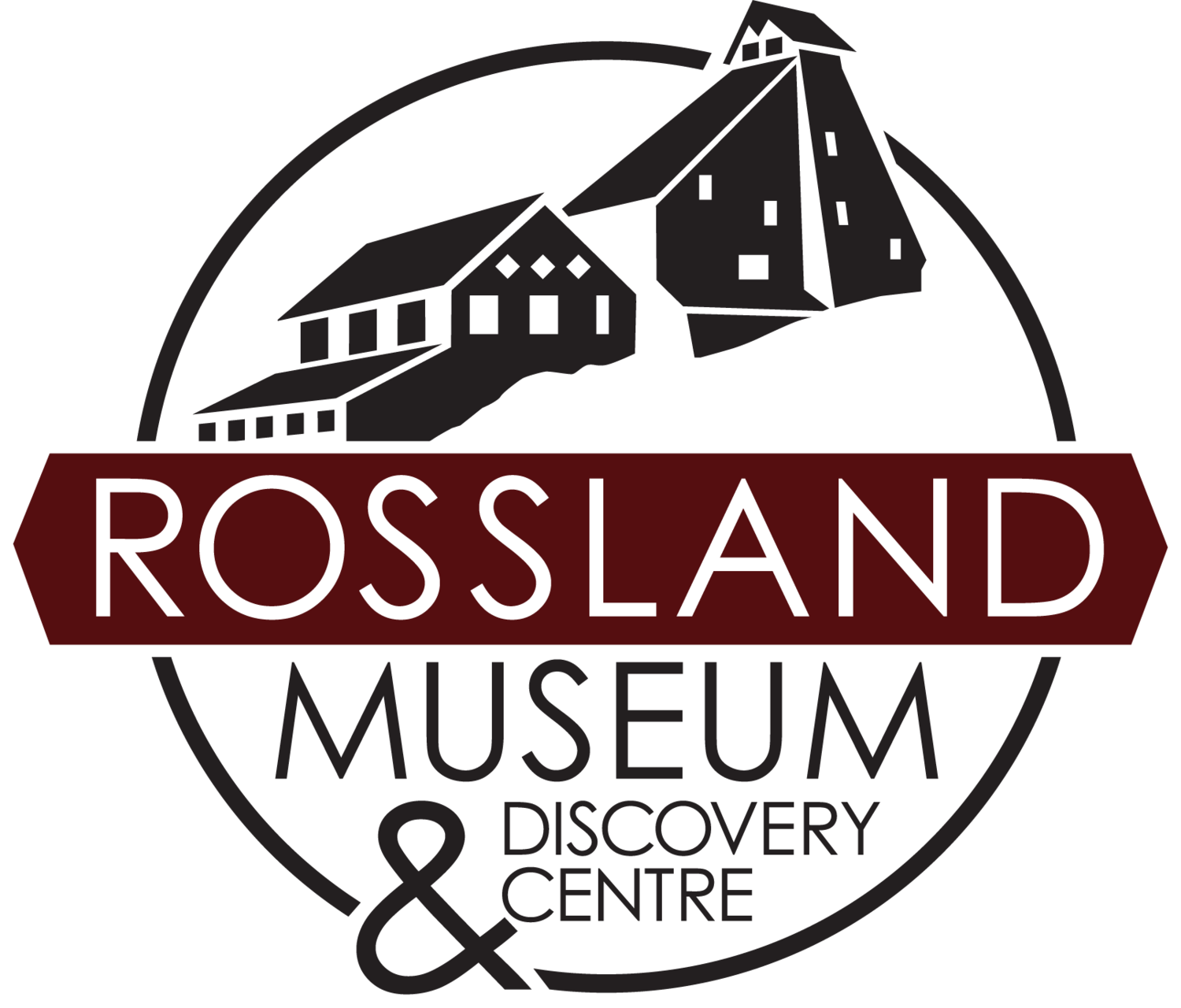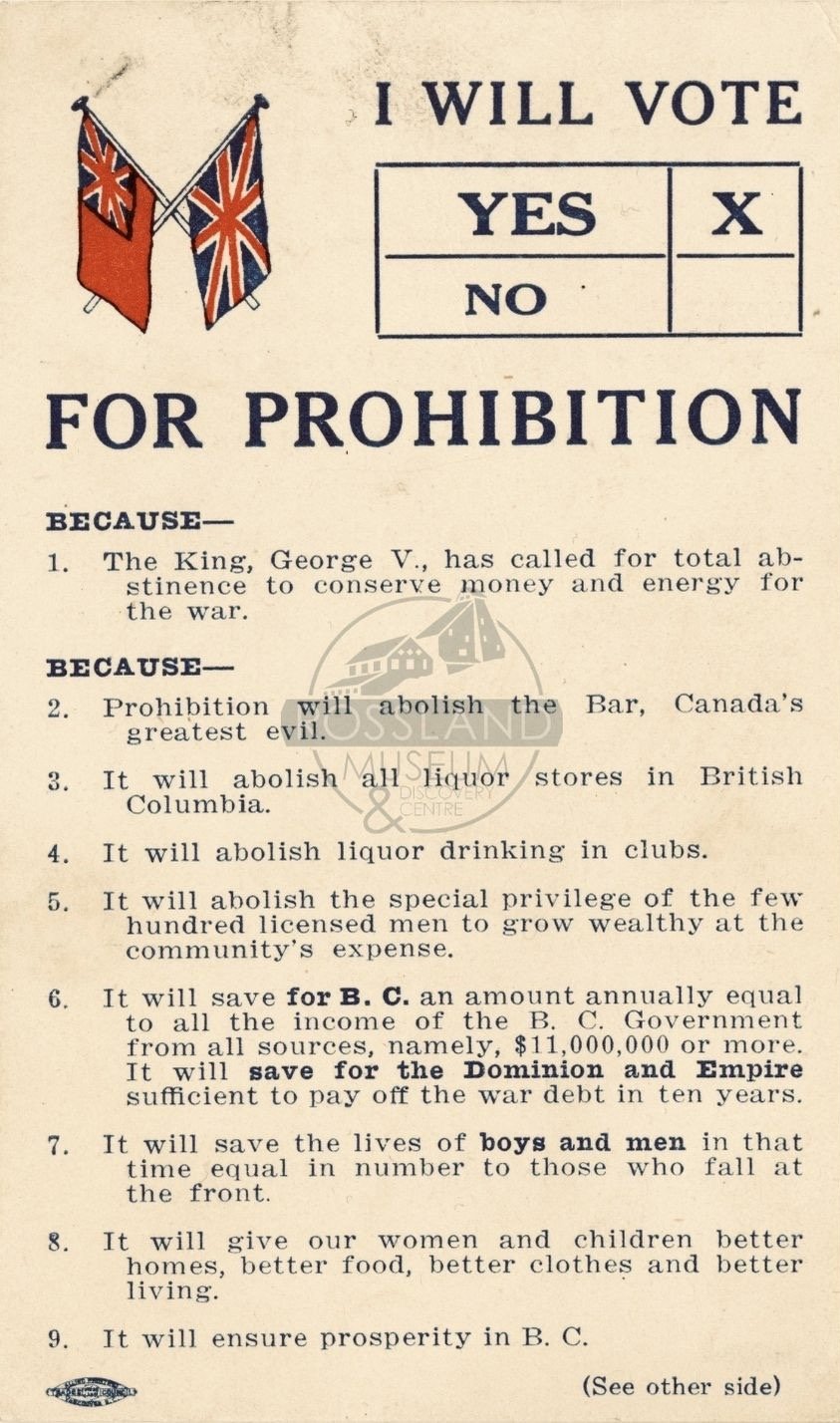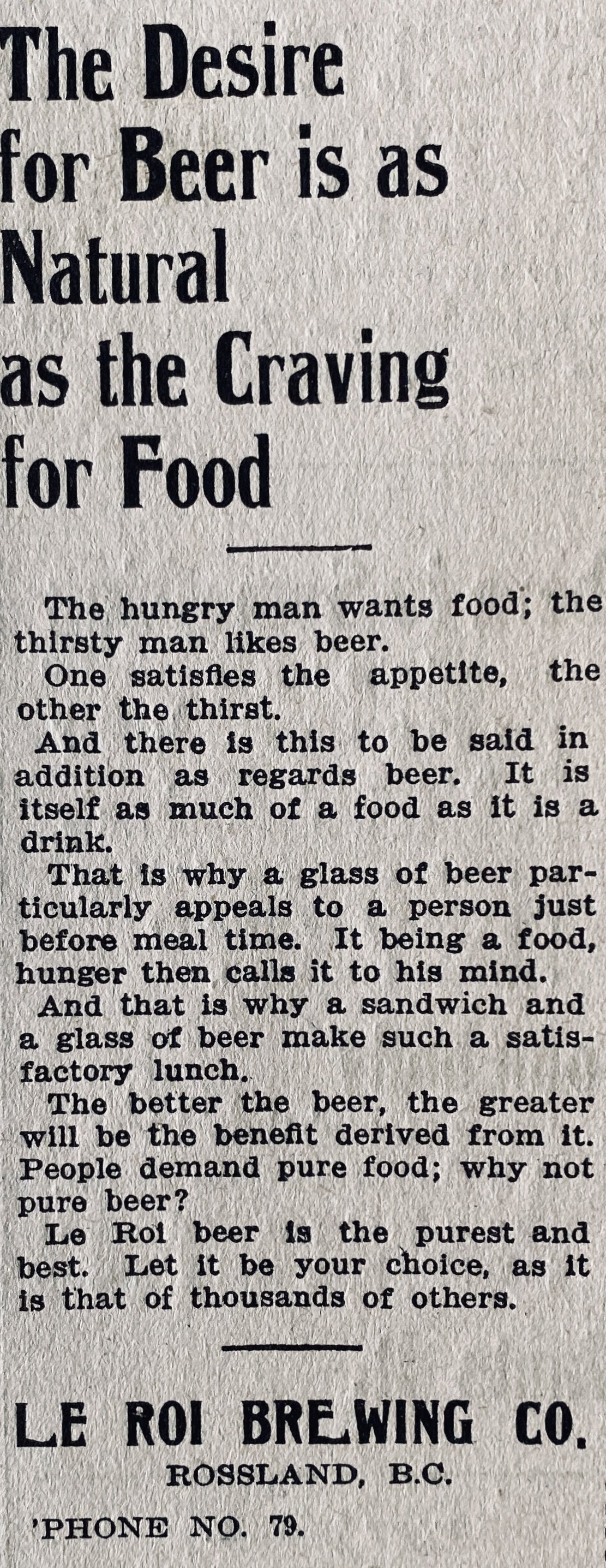Rossland Vices - Alcohol
Saloons, Breweries, and Prohibition
Saloons & Bars
“At the height of the Red Mountain boom, Rossland boasted more than forty-nine saloons.”
After a full day of physically demanding and extremely dangerous underground work, miners would often gather at a saloon or a hotel bar after their shift. The majority of Rossland’s saloons and bars were located inside hotels as a hotel liquor licence cost half the amount of the independent saloon or bar licence. These licences were issued by the City of Rossland, which also made them responsible for inspection and law enforcement.
2282.0064: The Hoffman House bar and billiards room, located on Washington Avenue. The owner, believed to be Harry McIntosh, is behind the bar on the right, circa 1900.
2282.0065: Front of the Strand saloon, circa 1900.
The Strand
Of the non-hotel saloons in Rossland, the Strand was one of the most prominent. Located on Columbia Avenue, the Strand was a lavish saloon opened in 1899 by Edward Watson. He reportedly spent $11,000 (approximately $750,000 in 2022) renovating the building and installing the bar, which had a mahogany finish. According to the Rossland Miner, it was, at the time, the most ornate saloon in the Kootenays! The Strand was a success, but the initial costs of the saloon were so substantial that they eventually crippled Watson financially. Watson died in 1903, and the saloon went through a variety of different owners before it eventually closed at an unknown date.
Hotel Bars
Breweries
In Rossland, hard liquor such as whiskey, vodka, and gin were imported, while Rossland’s breweries dominated the local beer market. The first breweries in Rossland were established in 1895, two years before the town’s official incorporation in 1897.
Rossland Spring Brewery (1895-1902)
Rossland’s first brewery, located at the corner of Washington Street and Le Roi Avenue, was opened in May 1895, by John “Spud” Murphy. Murphy was able to purchase two of the townsite's original lots to build the brewery as he was a close friend of Ross Thompson - Rossland’s founder. Murphy’s knowledge of brewing reportedly came from his experience working as a brewer at the Banff Hot Springs. In his brewery, Murphy employed skilled German brewers to produce lager, ale, and porter. The brewery used high-quality malts from California and hops from Washington, selling bottled beer as well as kegs. Murphy closed the brewery in 1902, leaving Rossland shortly thereafter.
Historic and Modern Rossland Breweries.
Columbia Brewery (1895-1900)
In October 1895, the Columbia Brewery was opened in Rossland by Frank Dreyer and William Hoffmeier. It was operated by the pair until March 1897, at which point the brewery was taken over by John Graden and Henry Gual. Graden was a native of Switzerland and Gual was a well-known brewer from Germany. Gaul was often noted as a ‘scientific’ brewer and his lager was reportedly superior to imported beers. In 1900, the Columbia Brewery merged with the Lion Brewing Company.
I-67986: Lion Brewing Company building, date unknown.
Lion Brewing Company (1897-1907)
In 1897, the Lion Brewing Company was opened by Louis Blue, located on the corner of Seventh Avenue and Elmore Avenue. Blue was regarded as one of Rossland's most prominent businessmen. Originally from Hungary, he spent his formative years in New York, before moving to Spokane, Washington, helping to establish the nearby town of Kettle Falls, Washington. He eventually came to Rossland from Spokane and built a sawmill on Stoney Creek as well as in Ymir and Greenwood. In 1899, the Lion Brewing Company absorbed the Yuengling Brewery in Trail, before merging with the Columbia Brewery in 1900. As a result of the merger, the Lion Brewing Company claimed it was, at the time, the largest brewery in British Columbia. The brewery, however, closed in 1907.
2282.0020: Le Roi Brewing Company, situated on the south side of Le Roi Avenue, circa 1910.
Le Roi Brewing Company (1897-1917)
The Le Roi Brewing Company was Rossland’s longest-running brewery. Opened in 1897 by Hugh Henderson and William Allen, the brewery dominated Rossland’s beer market, producing their well-known “Gold Seal Lager” and “Famous Perfection Beer.” It was located on Le Roi Avenue, west of Spokane Street. The Le Roi Brewing Company was forced to close in October 1917, when Prohibition was initiated in Canada.
Rossland Beer Company photo.
Rossland Beer Company (2012-Current)
The Rossland Beer Company was opened in June 2012 by best friends Petri Raito and Ryan Arnaud. The brewery is located on Columbia Avenue in the former location of Rossland’s landmark department store, Hunter Brothers. Beginning as a home-based brewery, the Rossland Beer Company grew into a large-scale operation, specialising in hand crafter lagers, ales, stouts, and IPAs. Since opening, the brewery has developed a strong connection with the community and is active in local fundraising efforts. In June 2022, the Rossland Beer Company celebrated its ten-year anniversary!
Enforcement & Prohibition
The serious enforcement of alcohol began shortly after the arrival of John Kirkup, Rossland’s first Police Constable, in 1895. Kirkup was a force to be reckoned with and did not tolerate any form of lawlessness in Rossland. After Kirkup concluded that the majority of crime in Rossland was due to alcohol, he announced in January 1896, the enforcement of a previously unenforced provincial law requiring saloons to close at 11:00 pm on Saturday and all day Sunday. Surprisingly, many were in favour of the law, though plenty were outraged. The Rossland Miner, for example, took issue with Kirkup’s decision and publicly criticised him in their newspaper (see article in gallery below).
Prohibition
Prohibition began in British Columbia on October 1, 1917, following a referendum supported by the provincial Liberal Party. The legislation prohibited the sale of alcohol in the province unless it was used in medical prescriptions. Prohibition, however, was difficult to enforce as doctors freely prescribed alcohol to patients, bootlegging became common, and bars continued to sell low-alcohol beverages. In Rossland, alcohol remained readily available during the early days of Prohibition. This was exacerbated by the fact that enforcement was rare and punishment only consisted of a fine. Prohibition was eliminated in the province during a plebiscite on October 20, 1920, and was replaced with a system of government-controlled alcohol sales and government-operated liquor stores. It was officially repealed on June 15, 1921, simultaneous with the first government liquor store opening.
RMDC Archives: Prohibition ballot, circa 1917.
James “The Soda Man” Harper
James “The Soda Man” Harper was a notorious local bootlegger who smuggled hard liquor and beer during Prohibition. During the Prohibition, he used his company, Columbia Bottling Works, as a front to smuggle alcohol amongst his regular deliveries. Allegedly, Harper employed school-aged children to help transport the alcohol and was fined regularly for distributing alcohol during the Prohibition. One particular example, in September 1920, Harper was charged with selling alcohol and brought before Rossland magistrate R.E. Plewman. Harper pled guilty and was fined $300 (approximately $4,000 in 2022). Moreover, Harper was also fined for transporting alcohol into the United States during American Prohibition (1920-1933).
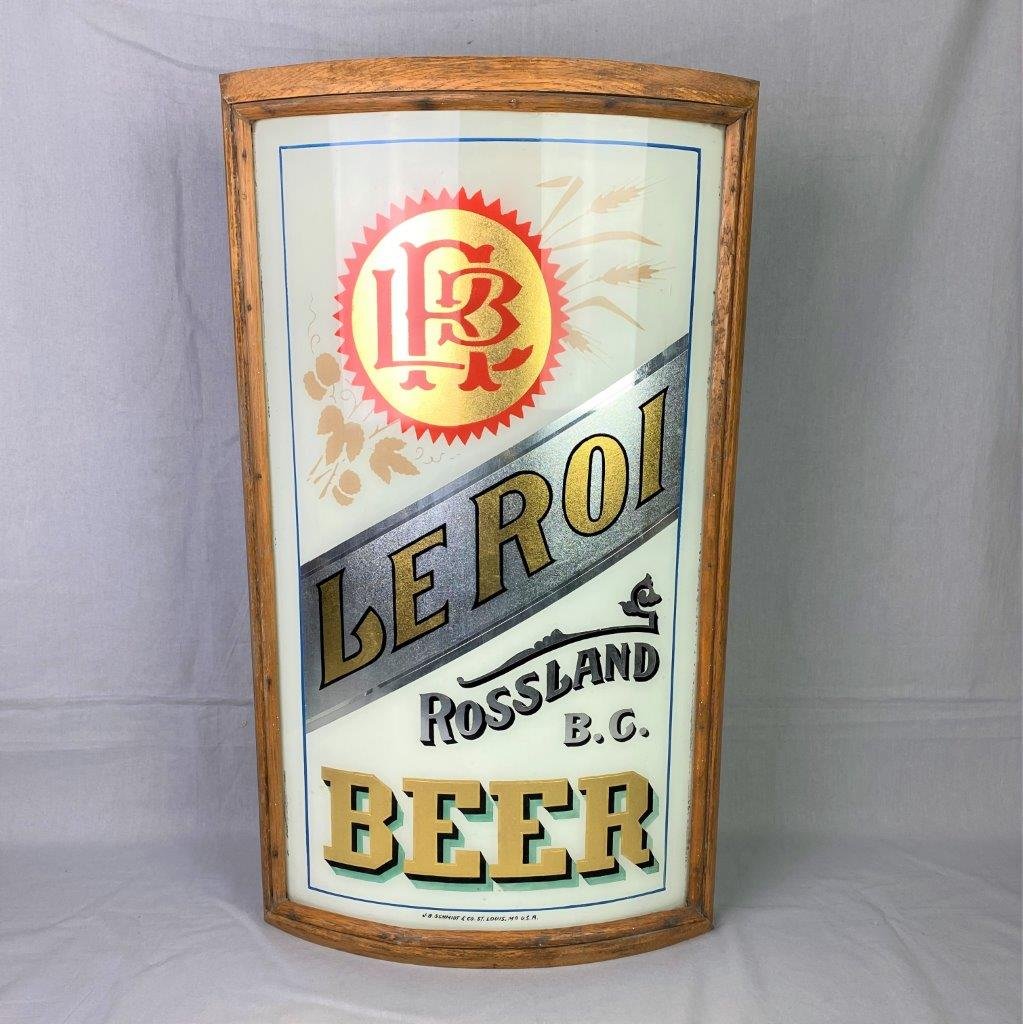
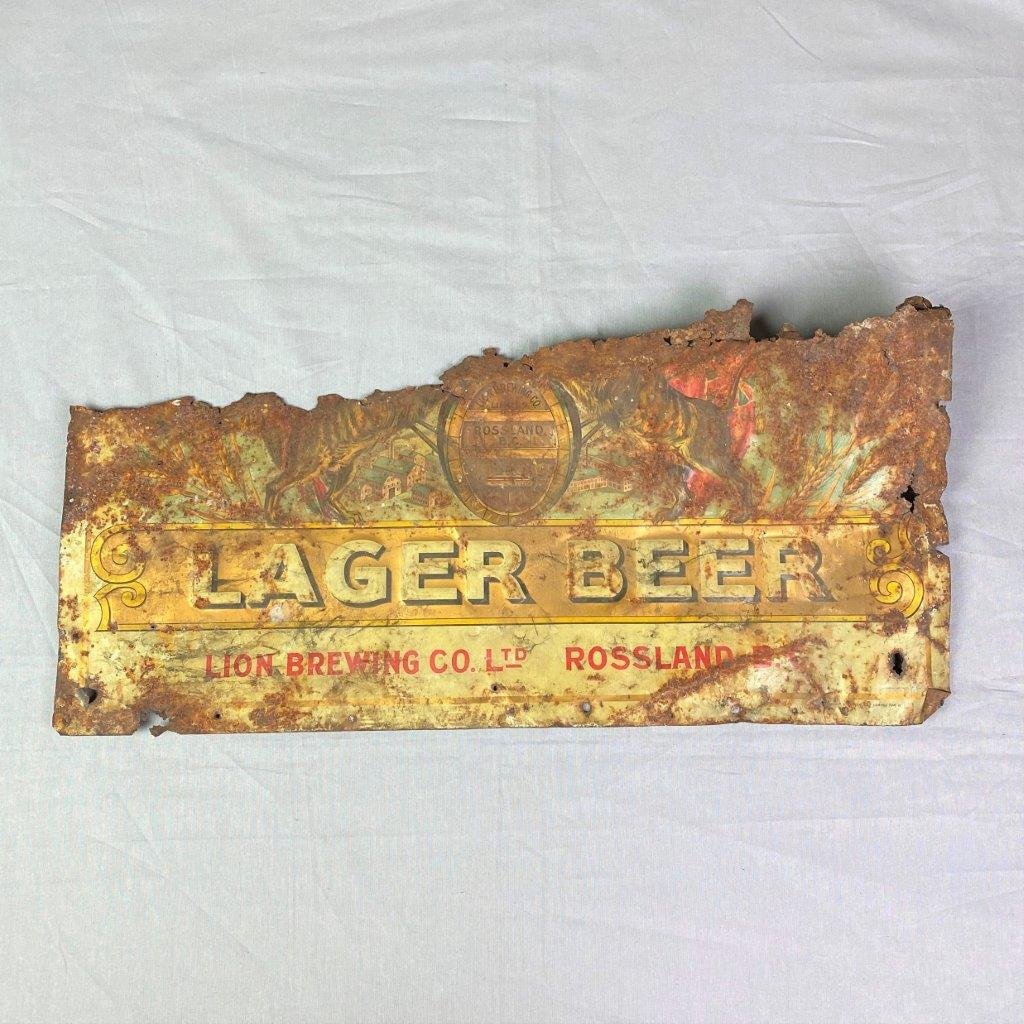
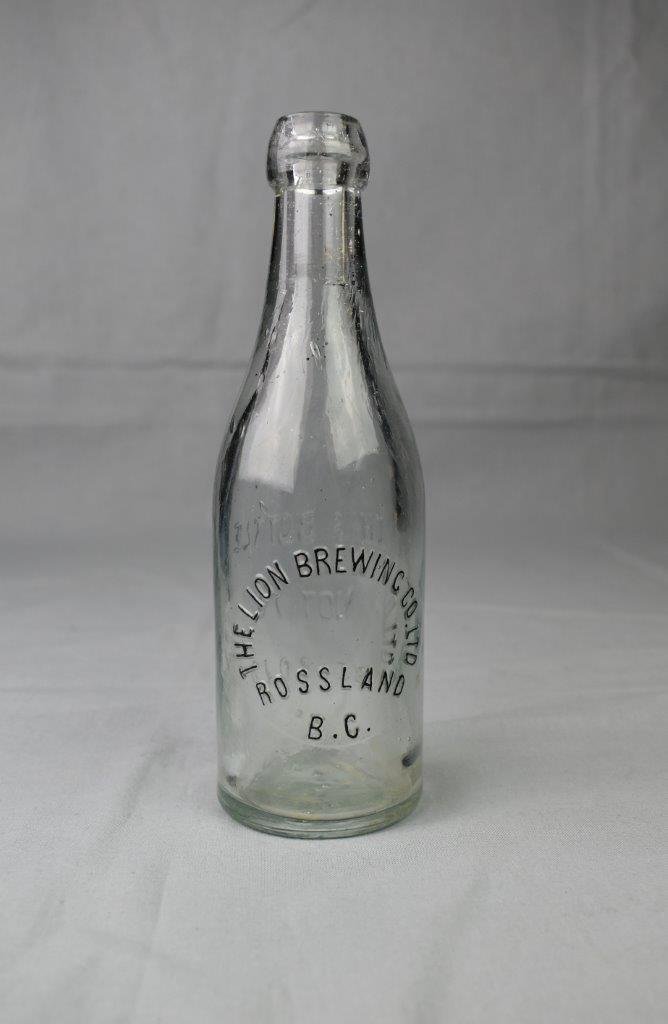
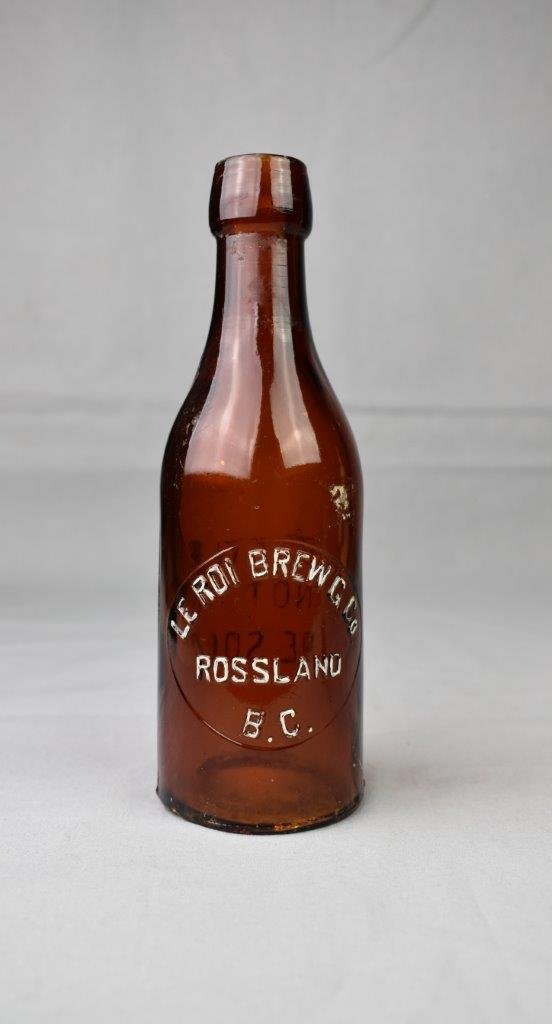
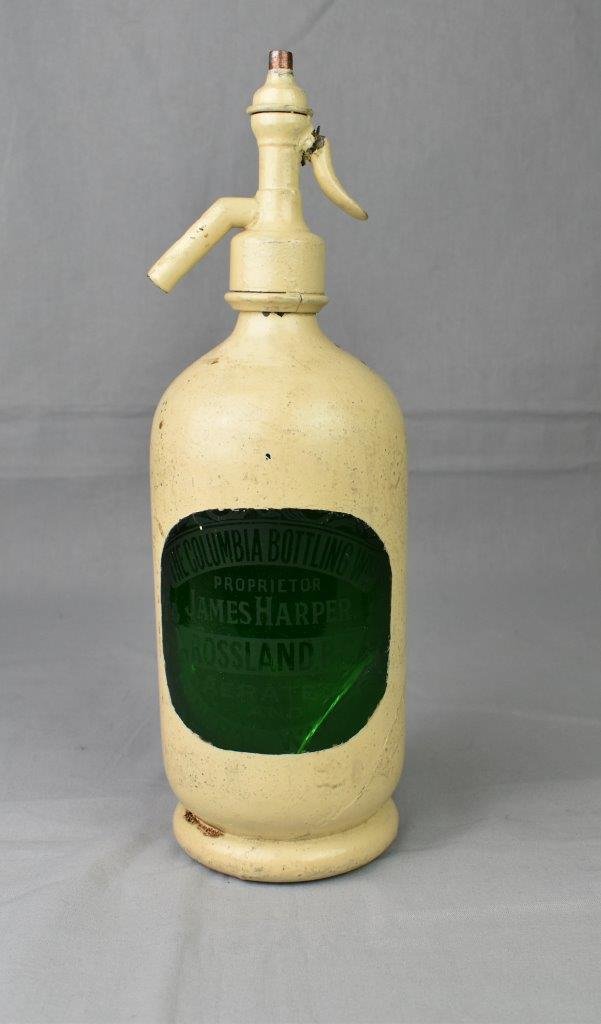
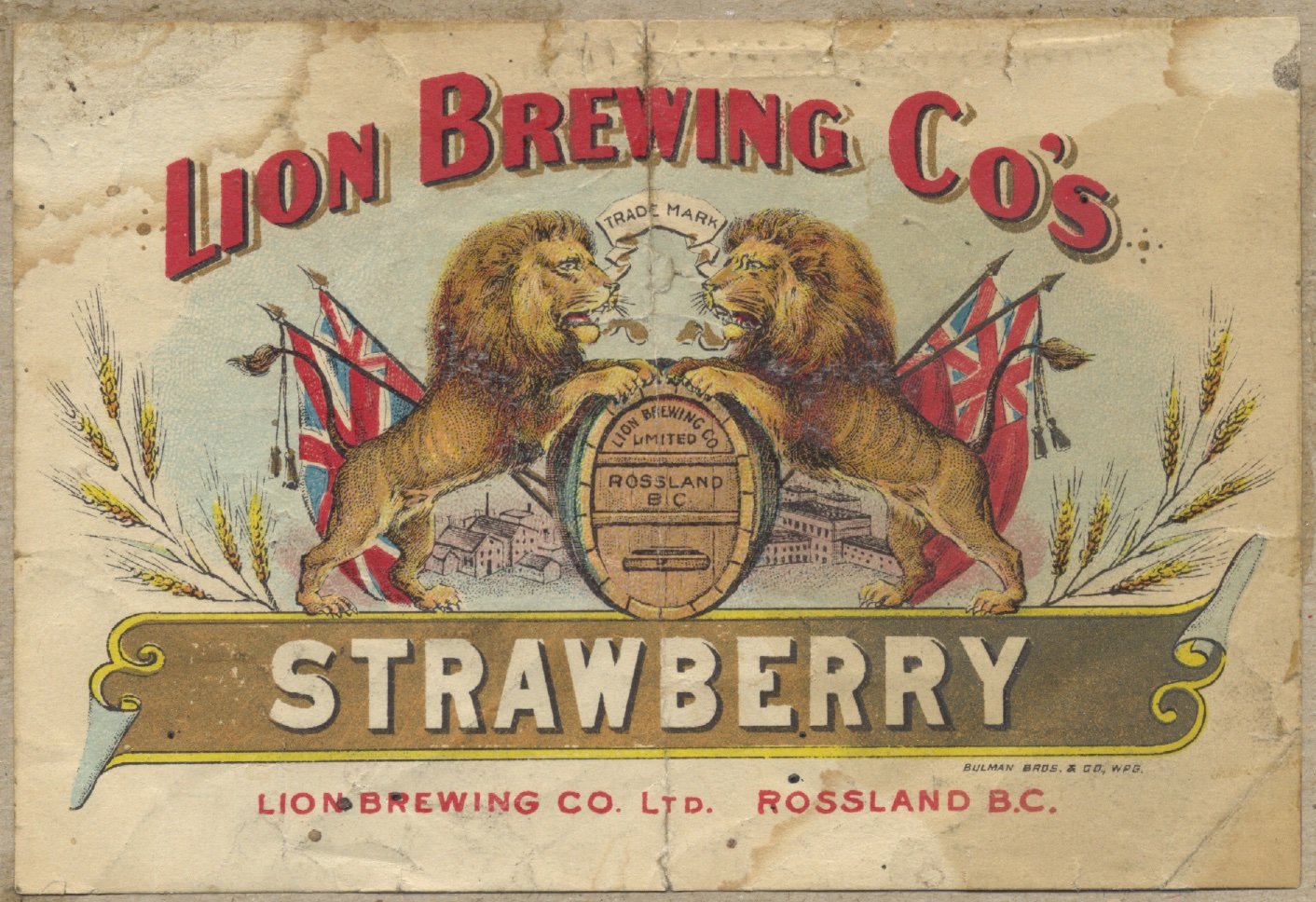
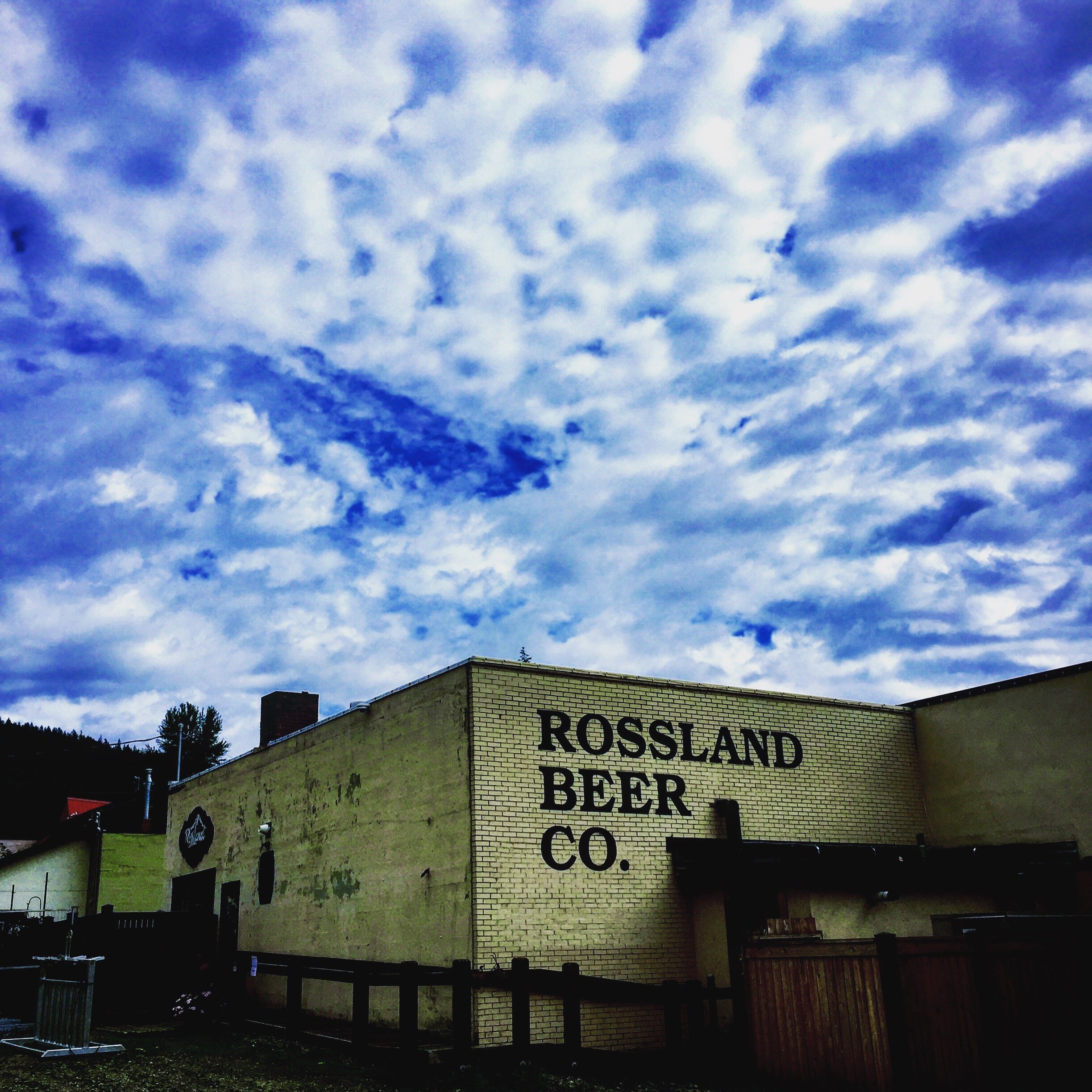
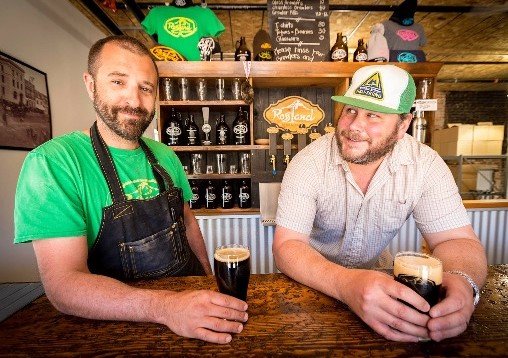
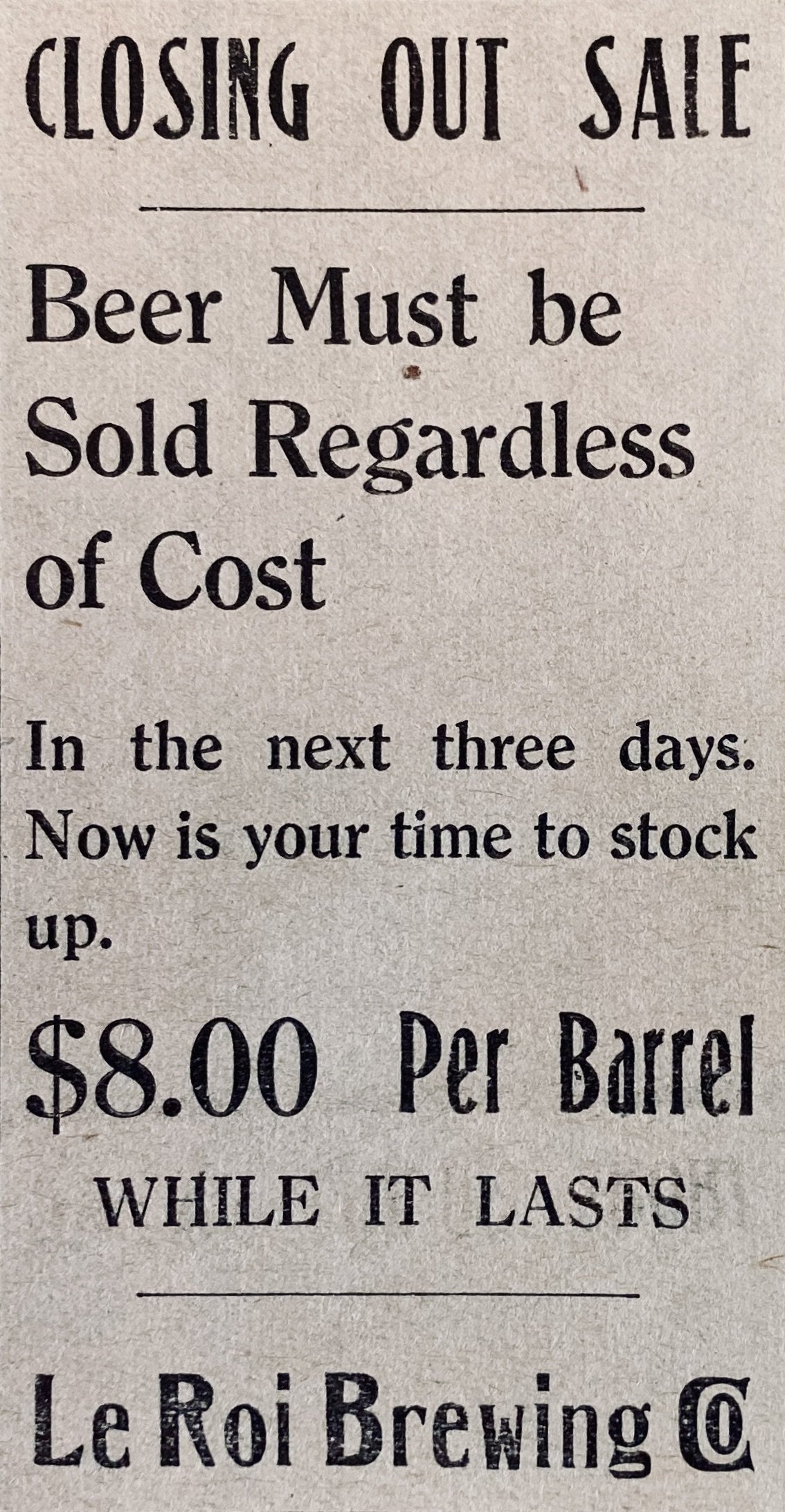
For More Information:
Sources:
Bank of Canada. Inflation Calculator.
Henderson’s Western Canada Gazetteer and Directory. Winnipeg, Manitoba: Henderson Directories, Limited, 1907.
Jordan, Rosa and Derek Choukalos. Rossland: The First 100 Years. Rossland, British Columbia: Harry Lefevre, 1995.
Kingsmill, Harold. First History of Rossland B.C. Rossland: Stunden & Perine, 1898.
Legislative Assembly of British Columbia. Prohibition Begins by Referendum.
Nelson Daily News. BC Historical Newspapers.
Rossland Miner. Collection of the Rossland Museum & Discovery Centre.
Whittaker, Lance. Rossland: The Golden City. Rossland: Rossland Miner Limited, 1949.
Contribute your own memories/experiences of Rossland’s Saloons/Bars, Breweries, and Prohibition:
The form below will email us your message. If you prefer to speak to us directly or have other questions or comments about this page, please call (250) 362-7722 or email the archives directly at archives@rosslandmuseum.ca.
